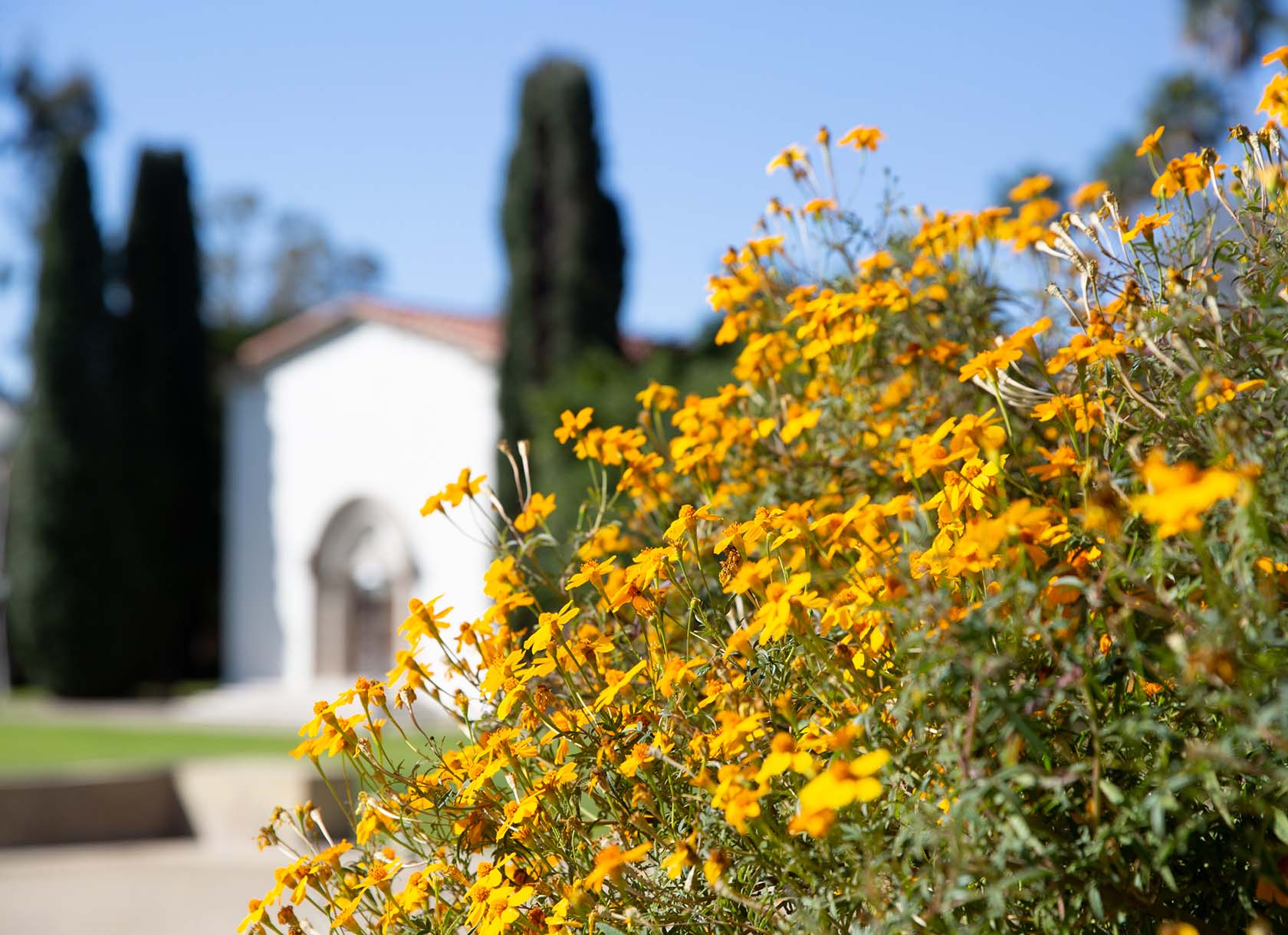
In February 2024, Becky Kyles joined Scripps College’s SCORE department in the Division of Student Affairs as the full-time international student advisor. Kyles became interested in international education as an undergraduate student at California State Polytechnic University, Pomona, where she worked as an assistant in the International Center. After graduating, she served as the student affairs coordinator for Cal Poly Pomona’s English as a second language (ESL) program and as an international student advisor for UC Riverside.
Now, Kyles is several months into her work assisting international Scripps students as they navigate the unique challenges of studying away from home. “This role wears many hats, but I see my key responsibility as being a point of contact for international students,” she says. “It can be difficult for any student to know who can answer their questions, and international students have additional layers of paperwork and responsibilities that they must comply with to maintain their legal status while studying. These layers can be daunting at times.”
The logistics international students are required to handle are extensive. “Much of my work is focused around creating and maintaining the students’ records with the Student and Exchange Visitor Information System (SEVIS) and providing them with guidance on how to maintain status and apply for practical training. Another large component is managing the intake of new students after admission and providing them with pre-visa information, arrival and adjustment support, and a preorientation program,” Kyles explains.
While Kyles can’t immediately answer every question that might be posed to her, she serves as a resource for making sure international students have a dedicated person to come to for help: “I can help get the information they need and let them know they are heard and supported. I also serve as an advocate for the international student population to the campus community.”
While many of the difficulties international students contend with are related to complicated regulatory requirements, the experience can also be isolating. “International students face the same pressures as domestic students—academic, financial, social, etc.—and may face the same or increased marginalizations based on intersecting identities and backgrounds. Issues such as difficulty finding connections and community, feeling safe and secure on campus and in the surrounding areas, or feelings of homesickness may be compounded by cultural differences as well as physical distance,” Kyles says.
Kyles points out that the international student experience is not homogenous, and different international students will face different challenges as they navigate their studies. “Though our current population of international students at Scripps is small, they have varying backgrounds. Some students have never been here before they arrived for university; others have attended boarding school in the US.” Accordingly, in order to best support these students, she takes a view that centers on the individual first.
Kyles says that she hopes to work toward the implementation of a more hands-on arrival program for new international students joining Scripps in order to fill gaps in expected support. While receiving feedback, Kyles has heard concerns that these gaps have resulted in increased difficulties for some international students. “It’s important that we not only let these students know that we care, but that we also provide a more robust preorientation program centering their immediate needs as well as critical regulatory matters.” Matters like navigating transportation, accessing meals, setting up a bank account, getting a cell phone, and even socially connecting with other students can come with increased difficulties for international students, which Kyles aims to help address.
“It’s evident that the faculty and staff at Scripps care very much about the well-being and future of their students and are open to student feedback,” Kyles says. “Continuing to listen to our students’ voices is essential. I have been able to meet with several students one on one and hope to have the chance to meet with each student and learn about their interests, needs, and experiences throughout the remainder of the term.”

